Africa
Commonwealth lifts Gabon’s partial suspension following April presidential vote
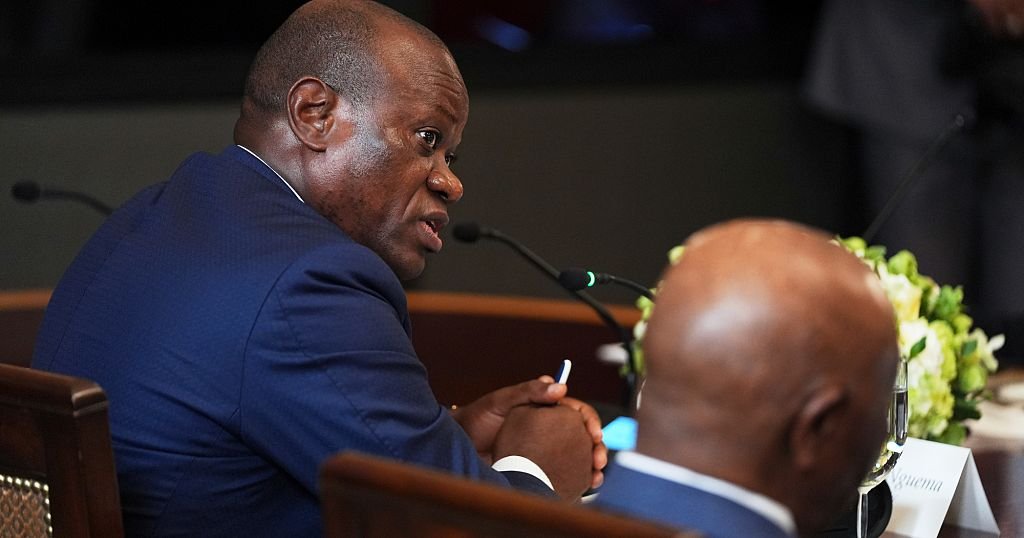
Gabon has been restored to full membership of the Commonwealth following the country’s recent presidential election.
The association made the announcement on Tuesday, following a meeting of the Commonwealth Ministerial Action Group.
Gabon was partially suspended from the 56-nation group in September 2023, a month after the elected government of Ali Bongo Ondimba was ousted in a coup.
In April this year, coup leader Brice Oligui Nguema won the presidential election with almost 95 percent of the vote.
The Commonwealth ruled the poll was credible, transparent and inclusive and decided to lift Gabon’s partial suspension.
The CMAG welcomed Gabon’s return to constitutional democracy and reiterated its condemnation of any unconstitutional overthrow of a duly elected government, stressing that “such action violates the democratic principles at the heart of the Commonwealth and is a serious breach of the Commonwealth Charter.”
It said Gabon would remain on the group’s agenda as it works towards fulfilling its obligations under the Commonwealth Charter.
Rooted in the British Empire, the Commonwealth is now open to all countries. Togo and Gabon are the newest members, both joining in 2022.
Africa
Saïdia: Morocco’s Blue Pearl of the Mediterranean
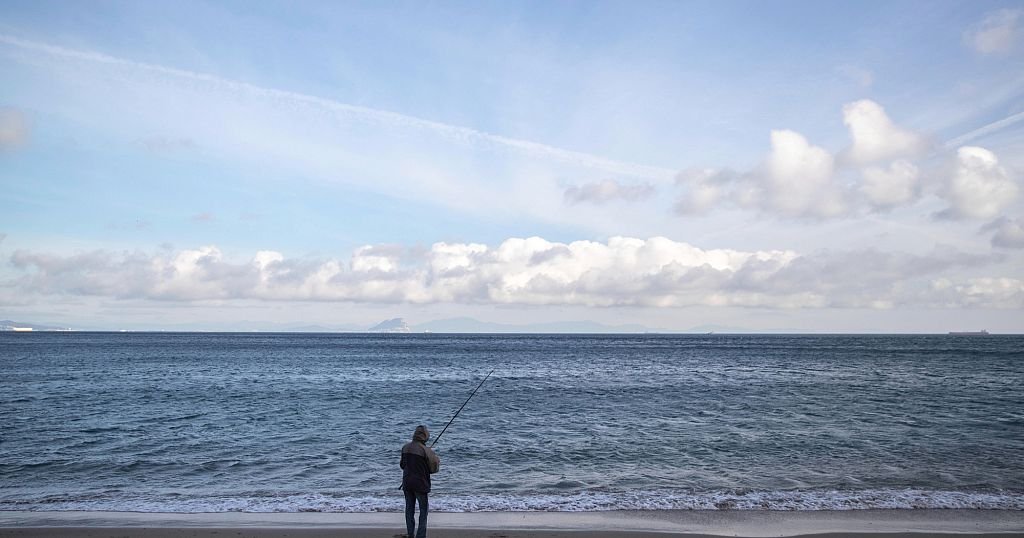
Summer in Saïdia, often called the “Blue Pearl of the Mediterranean”, is a vibrant mix of sun, sea and serenity.
Situated in north-east Morocco, close to the Algerian border, Saïdia is renowned for its 14 kilometres of golden sandy beaches stretching out over calm turquoise waters.
From June to September, the town is bustling with locals and international visitors eager to enjoy its Mediterranean charm, gentle sea breezes and lively atmosphere.
“A lot of us come to Saïdia, a lot of people from the east come because it’s beautiful, and people from all over Morocco come here too,” says one young man on his way to the beach.
The seafront promenade, lined with cafés, restaurants and family resorts, becomes the heart of summer evenings. As the sun sets, the smell of grilled seafood fills the air and music blares from the terraces where families and friends gather.
For those seeking adventure, Saïdia offers much more than just sunbathing. Water sports such as jet skiing, banana boating and sailing are popular daytime activities. Inland, you can explore the Moulouya National Park, a haven for birds and nature lovers.
Africa
Trump to slap 10% tariff on small nations including in the Caribbean and Africa
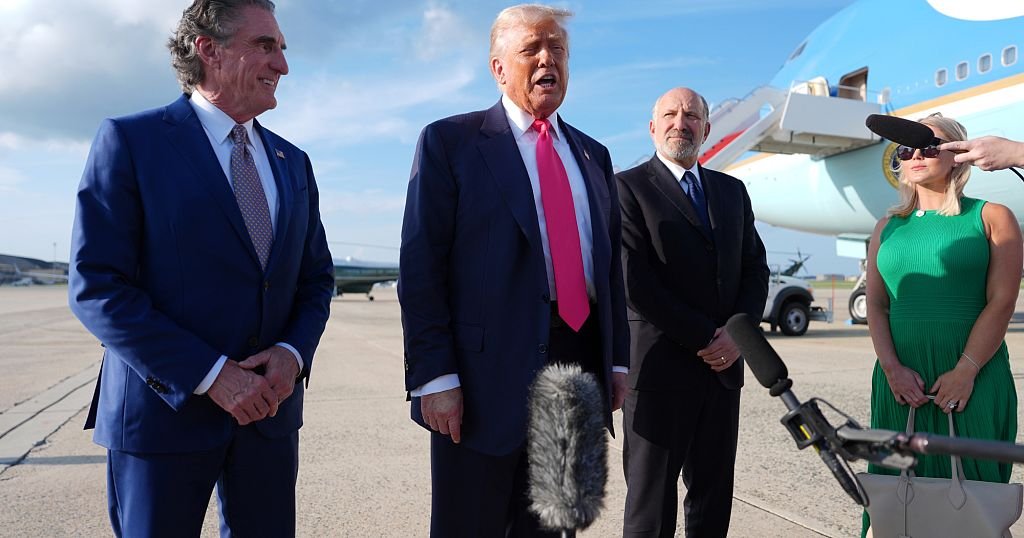
US President Donald Trump is ramping up his tariff agenda, announcing plans to impose new duties of over 10 percent on imports from smaller nations, including several in Africa and the Caribbean. The move marks a sharp shift in US trade policy, aimed at what Trump describes as “reciprocal” treatment.
Several African countries are already preparing for steep increases. Lesotho, a small Southern African nation, could face tariffs as high as 50 percent on goods exported to the United States. While the tariffs are currently on hold during a three-month consultation period, concerns are rising over the long-term economic fallout.
“These are countries. Many of them, you know, like 200 countries,” Trump said in response to questions about which nations would be affected. “We’ll probably set one tariff for all of them.”
US Commerce Secretary Howard Lutnick supported the move, saying the President plans to handle small nations in the way he believes is most effective. “The Caribbean countries, African countries. There are a lot of them,” Lutnick said.
The World Trade Organization is urging the United States to reconsider. WTO Director-General Ngozi Okonjo-Iweala has called for African countries to be exempt from the proposed tariffs, warning that such actions could severely damage developing economies and undo years of progress.
As the consultation period unfolds, both affected countries and international trade bodies are calling for dialogue. They hope to avoid a new wave of economic instability, especially for vulnerable economies dependent on exports.
Africa
Nigeria’s former president Buhari laid to rest in his hometown of Daura
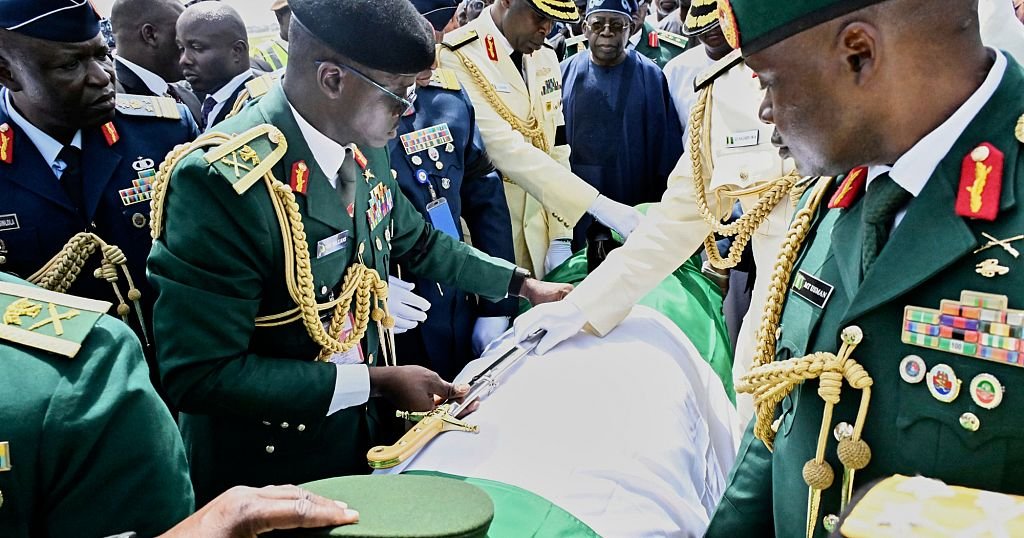
Nigeria’s former president Muhammadu Buhari was buried Tuesday in his hometown of Daura in northwestern Nigeria, where thousands of people lined the streets to say their goodbyes.
Buhari died Sunday in London, where he had been receiving medical treatment.
He first took power in Africa’s most populous nation in 1983, after a military coup, running an authoritarian regime until fellow soldiers ousted him less than 20 months later.
When he was elected in 2015 on his fourth attempt, he became the first opposition candidate to win a presidential election there.
Buhari rode into power in that election on a wave of goodwill after promising to rid Nigeria of chronic corruption and a deadly security crisis.
He led the country until 2023, during a period marked by Boko Haram’s extremist violence in the northeast and a plunging economy.
Current President Bola Tinubu in a statement described Buhari as “a patriot, a soldier, a statesman … to the very core.” Tinubu dispatched the vice president to bring Buhari’s body home from London.
Others across Nigeria remembered Buhari as a president who left the country of more than 200 million people — divided between a largely Muslim north and Christian south — more at odds than before.
For many, Buhari will be linked with memories of the 2020 youth protests against a police unit accused by rights groups and others of extrajudicial killings, torture and extortion — and the deadly shootings of demonstrators by soldiers.
Coming from Nigeria’s north, the lanky, austere Buhari had vowed to end extremist killings and clean up rampant corruption in one of Africa’s largest economies and oil producers.
By the end of his eight-year tenure, however, goodwill toward him had faded into discontent.
Insecurity had only grown, and corruption was more widespread.
Nigeria also fell into a recession amid slumping global oil prices and attacks by militants in the sprawling oil-rich Niger Delta region.
The currency faltered as Buhari pursued unorthodox monetary policies to defend its fixed price to the dollar, and a massive foreign currency shortage worsened.
Inflation was in the double digits.
Civil society accused him of authoritarian tendencies after protesters were killed during a protest against police brutality and over his decision to restrict access to social media, as young people vented their frustrations against economic and security problems.
Buhari’s attempts at managing the problems were complicated by prolonged medical stays abroad.
His absences, with few details, created anxiety among Nigerians and some calls for him to be replaced.
There also was anger over his seeking taxpayer-funded health care abroad while millions suffered from poor health facilities at home.
-
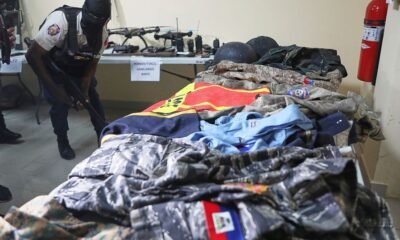
 Africa5 days ago
Africa5 days agoUN warns of worsening violence and mass displacement in Haiti, in new report
-
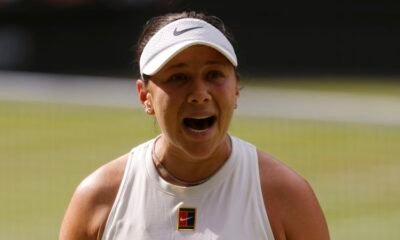
 Sports5 days ago
Sports5 days agoAmanda Anisimova vows to return stronger after being ‘frozen’ with nerves during Wimbledon final defeat
-
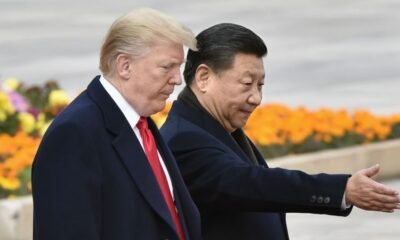
 Asia4 days ago
Asia4 days agoThe deadly drug that’s complicating US-China trade
-
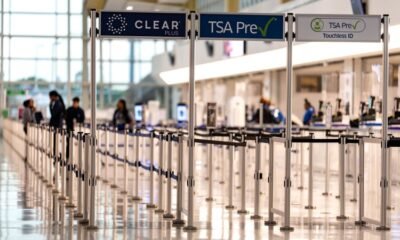
 Europe5 days ago
Europe5 days agoWhy sweating might get you pulled over at airport security
-
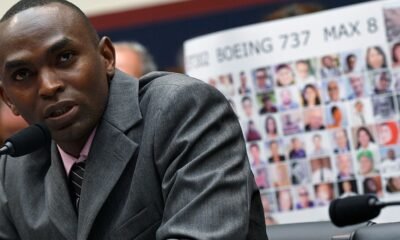
 Africa5 days ago
Africa5 days agoBoeing reaches settlement with man who lost entire family in 737 MAX Crash
-
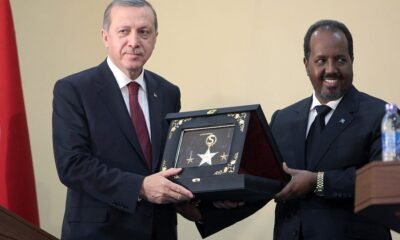
 Africa5 days ago
Africa5 days agoSomalia-Ethiopia tensions escalate as port deal talks stall
-
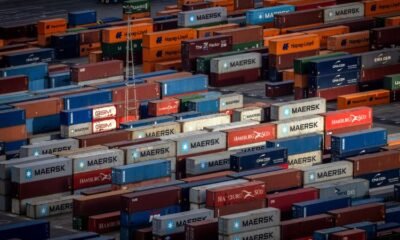
 Europe5 days ago
Europe5 days agoTrump announces new tariffs of 30% on Mexico and the European Union
-
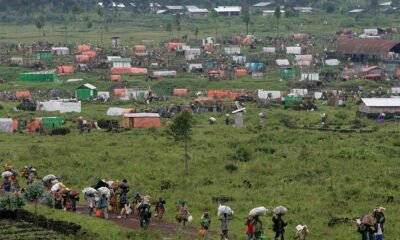
 Africa5 days ago
Africa5 days agoUganda reopens border with M23-held eastern DRC




